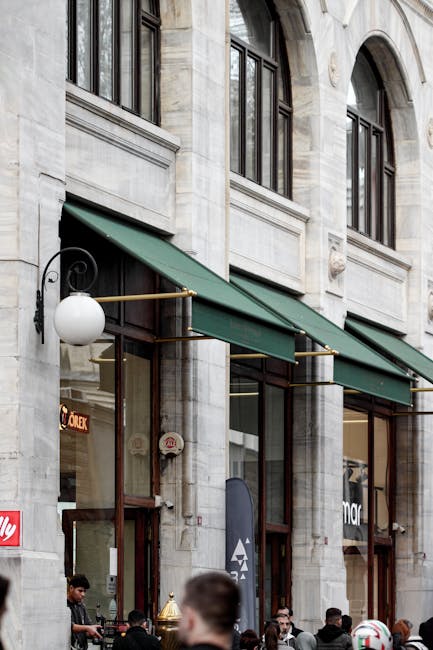Against the backdrop of the sharp decline in the yen exchange rate, Chinese tourists have once again ignited their enthusiasm for shopping in Japan. Social platforms are flooded with discussions about purchasing luxury goods at low prices in Japan, making the topic of “shearing the wool” in Japan a popular one. However, compared to the “explosive buying” phenomenon nine years ago, consumers are now targeting luxury and high-end products more.

According to data from Ctrip and Tongcheng platforms, Japan has become the most popular destination for outbound travel during the May Day holiday, with its popularity more than tripling from the same period last year. Many travelers plan not only to enjoy Japan’s beautiful scenery and cuisine during the holiday but also to take advantage of the low prices by planning a “buy, buy, buy” trip.
Although not everyone can make the trip to Japan themselves, posts about purchasing on behalf of others are very popular on social platforms like Xiaohongshu. Clearly, domestic consumers are enthusiastic about remote shopping through proxies. Even Chinese people working in Japan have felt the strong demand for proxy purchasing from their friends and relatives.
Clearly, consumer enthusiasm has now turned to luxury brands like LV. Take the Matsuya LV store in Tokyo’s Ginza as an example; during the May Day period, there were long queues, with many consumers starting to line up even before the opening to snag their desired products. The LV Speedy 20 handbag, for instance, after some calculations, offers a significant price advantage compared to domestic prices, further fueling shoppers’ enthusiasm.
At the Shinsaibashi Takashimaya shopping center, seize the opportunity to use the China Merchants Bank UnionPay credit card to enjoy a 300 yuan cashback, and Ctrip also offers a 3% cashback promotion. With these discounts, you could ultimately take home your desired product for 12,579 yuan, while the price at domestic counters is as high as 16,700 yuan, meaning buying in Japan can save you more than 4,000 yuan.
According to a comparison by Xiaohongshu bloggers, we see the price difference between China and Japan. “Prices of LV goods in Japan are now equivalent to a discount of 70-80% of the prices in China,” says Sisi, a part-time proxy shopper who is also a local guide in Japan. Luxury brands like LV are very popular among consumers because of the low yen exchange rate.
On Xiaohongshu, LV is even jokingly referred to as a “Japanese specialty” because almost every Chinese tourist owns a piece. Although traditional second-hand luxury shops like Daikokuya also have certain popularity, they appear to be less cost-effective compared to official boutiques since second-hand shops will adjust prices in a timely manner to reflect exchange rate fluctuations, making it more economical to buy brand new products.
Looking back at 2015, China also experienced a craze for purchasing items from Japan, with popular proxy shopping items being smart toilet seats, rice cookers, and other household appliances. Wu Xiaobo described this phenomenon in his article “Going to Japan to Buy a Toilet Seat,” pointing out that despite the high prices, Japanese tax-free shops were frequently sold out due to the enthusiastic purchases of Chinese tourists.
But now the situation has changed, and products like smart toilet seats and rice cookers are no longer popular, replaced by various luxury goods and cutting-edge products. Moreover, due to proxy shopping, Fuji cameras and instant camera film have even sold out, forcing stores to implement purchasing limits. Proxy shoppers even describe their activities as a “bird hunting operation” in Japan, aimed at capturing high-end brands that are the “primitive birds” of products.
Due to exchange rate fluctuations, compared to before, purchasing luxury goods and high-end products in Japan has become more cost-effective, and might even be seen as a form of investment. Coupled with the advancement of domestic appliance technology and the attention to Japan’s nuclear wastewater and other issues, many Chinese no longer hold the superstitions about Japanese products they used to have.
Five years ago, Chen Han often had requests from family and friends to bring back small appliances, cosmetics, and skincare products, but now the shopping lists he gets are almost all luxury goods and high-end products. “Five years ago, I carried two rice cookers back to the country; now I just need to carry two LV bags, which is much lighter.”
“Flying to Japan on April 29th, anyone in need can contact me.” A user named KoKo posted her purchasing service on Xiaohongshu, quickly drawing widespread attention. KoKo admitted that she had not formally engaged in purchasing services before but occasionally bought cosmetics for friends. Witnessing the current craze, she decided to join the purchasing trade. During the process of purchasing two LV bags and an Omega watch in less than three hours, she not only enjoyed the pleasure of shopping but also earned a commission of nearly 3,000 yuan, essentially recouping her plane ticket cost.
With the arrival of the May Day holiday, not only tourists planning trips but also Chinese international students and working expatriates in Japan have felt the intense craze for purchasing services early on. A student named Chen Han said that starting from March, people have been inquiring whether he could offer purchasing services. By April, the number of people interested in purchasing surged. Although he didn’t have much experience personally, initially only helping relatives and friends purchase items including luxury goods, electronics, and various model toys, as time went by, he began to offer purchasing services to friends on the internet. He admitted that the income from purchasing services was not substantial, only just enough to cover daily expenses. He believes that this is related to the depreciation of the yen and rising prices, while their salaries have not seen a corresponding increase.
While studying in Japan, Maiji revealed that whenever she walked into drugstores and department stores, she often saw purchasers busy buying goods and streaming live to sell products on the spot. Sometimes, products get sold out immediately from the shelves. Inspired by this phenomenon, Maiji also tried to post purchasing information on online platforms like Xianyu, but so far, the number of orders remains limited.
Today’s purchasing market is no longer the domain of professional practitioners. International students, overseas workers, and tourists who initially planned to travel abroad have all been influenced by the purchasing trend and started to try engaging in the business. According to data recently released by the Japan Tourism Agency, the travel consumption in Japan reached 1.7505 trillion yen in the first quarter of 2024, approximately 82 billion yuan in Chinese currency (RMB), an astonishing increase of 73.3% compared to the same period last year.
Affected by the purchasing craze, purchasers in Japan are not only Chinese. A blogger shared their experience: from luxury items, watches, cameras to folding bicycles and helmets, all kinds of goods are in high demand. It’s not just Chinese purchasers, but many Koreans, Europeans, Americans, and consumers from Southeast Asia have also joined the shopping army in Japan.
Chinese tourists in Japan have particularly noteworthy spending power. According to data from the Japan Tourism Agency, Chinese tourists spent a total of 352.6 billion yen, roughly equivalent to 16.5 billion RMB, ranking first in the consumption list of all tourists, with an average expenditure of 293,100 yen per person, about 13,741 RMB. This figure means that on average, each person could have bought an LV Speedy 20 handbag.
However, purchasing on behalf of others is no easy task. In the context of global consumption decline, consumers seeking Japanese purchasing agents are primarily motivated by price and cost-performance considerations. They remain very cautious; although the purchasing business seems booming on social media platforms, whether deals are finalised still depends on many factors. A purchaser named KoKo stated that despite receiving numerous private messages and comments, very few consumers actually decide to place orders.
Moreover, the purchasing craze in Japan has been ongoing for nearly a month, and many popular models in stores have sold out. One person, who has been in the purchasing business for two years, complained that after rushing to several shops, they still could not fulfill the customer’s order, as popular products and specific sizes had been snapped up early, forcing them to cancel orders.
In the purchasing process, difficulties include getting up early to queue, running to various stores, communicating with staff, looking for better discount policies, and handling tax refund issues; these are just minor challenges. The biggest obstacle lies in how to successfully bring the purchased luxury goods and various popular items back to the country.
Many individuals like Beibei are active in the purchasing field. She frankly admits: “Purchasing is actually a gray industry chain.” To evade taxes, the luxury goods she purchases usually do not retain external packaging but only include the dust bag. To get through customs inspections unscratched, she even collaborates with friends, such as one person carrying the packaging box while another only carries the product itself—all to avoid paying taxes, as after all, the price advantage would vanish should taxes apply.
Even at the peak of purchasing trips to Japan, there are former professional purchasers like Liu Yi who remain rational and have opted out of the intense purchasing competition. In her opinion, the essence of purchasing is merely fishing for fame and relying on price differences. In the past, purchasing profits mainly relied on information asymmetry and price advantages. But now, with lower travel barriers and social platforms reducing information gaps, purchasing is no longer the highly profitable business it used to be.
In terms of purchasing, another important issue is taxes on goods. Previously, including discounts, a bag priced at 12,000 RMB could be sold by a purchasing agent for 14,000 RMB, and customers often accepted this as it was much cheaper than domestic counters. However, today with the rise of social platforms, purchasing prices have become more transparent, “If you price it at 14,000 RMB, the customer may say I saw on Xiaohongshu that it can be bought for just 12,000 RMB, why are you earning so much from me?” These doubts often overlook the cost of flights and accommodations involved in purchasing. To save expenses, many purchasers opt to stay in economical capsule hotels or even take red-eye flights, making the competition increasingly fierce.
Another factor influencing the personal shopping business is the rise of domestic e-commerce platforms. As early as 2015, Liu Qiangdong predicted at the JD Global Purchase Australia conference that due to high tariffs and the inconveniences of cross-border trade, Chinese people tended to buy foreign products through personal shoppers. However, with the government’s support for cross-border e-commerce, these barriers are gradually disappearing. Ultimately, all retail business will belong to large merchants, as only they have the capacity to manage the supply chain. Individual sellers are unable to establish or improve the efficiency of supply chains. Nowadays, e-commerce platforms like Tmall, JD.com, and Pinduoduo are selling a variety of overseas products, even those that were once only available through personal shopping, which have now become widely available on these platforms.
With the prevalence of e-commerce platforms, personal shoppers like Liu Yi now hardly ever sell Japanese and Korean beauty and skincare products, because there’s “only minimal profit to be made,” and the prices on e-commerce platforms are often much lower than individual personal shoppers. Some larger personal shoppers leverage their business advantages, start recruiting, and negotiate directly with duty-free shops, transforming into legitimate businesses or becoming dealers; while many small-scale personal shoppers either switch careers or begin taking on part-time work. Many professional personal shoppers believe that the Japanese personal shopping craze will not last very long.
In 2022, the yen exchange rate hit a nearly 20-year low, making Japan’s personal shopping market extraordinarily hot at the time. But this was soon followed by price adjustments by luxury brands such as LV, Chanel, and Cartier—adhering to the principles of scarcity and luxury, these brands deliberately control their counter prices and volume of goods. For Bei Bei, no matter how long this heat lasts, she prefers to seize the opportunity to make money first, as she believes “such personal shopping opportunities will become increasingly rare.”
And individuals like Chen Han who are caught up in the personal shopping craze aren’t too concerned about how long it will last. He says: “I look forward to the exchange rate stabilizing and life returning to normal, so I don’t have to rush to the counter for ladies’ handbags anymore.”
Japan is an island country located in East Asia, renown for its unique and exquisite fashion and design. Luxury brands like Louis Vuitton (commonly known as LV) have a high degree of recognition and popularity here. For various reasons, including currency exchange fluctuations and tax policies, people often find that purchasing luxury brands through Japanese personal shoppers can be more cost-effective than in other places.
When it comes to personal shopping, the common understanding is: people or companies in Japan buy products and then sell them to customers in other countries. This means that foreign customers can enjoy the benefits of shopping in Japan through personal shopping service, and can access products that may be difficult to find locally.
Louis Vuitton is world-renowned and has become a symbol of status and taste. Its product line is extensive, including handbags, leather goods, shoes, accessories, watches, jewelry, etc. In Japan, especially in big cities like Tokyo, Kyoto, and Osaka, LV stores often offer tax exemption services specifically designed for tourism shoppers, further reducing the purchase cost.
Therefore, purchasing LV products through a personal shopper may be a cost-effective method that allows customers to enjoy the pleasure of buying this French luxury brand’s products without having to visit Japan in person. Whether for personal use or as a gift, the LV products bought through this service can showcase a unique taste.



